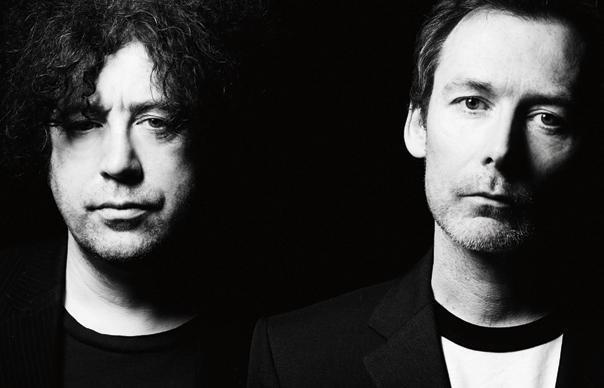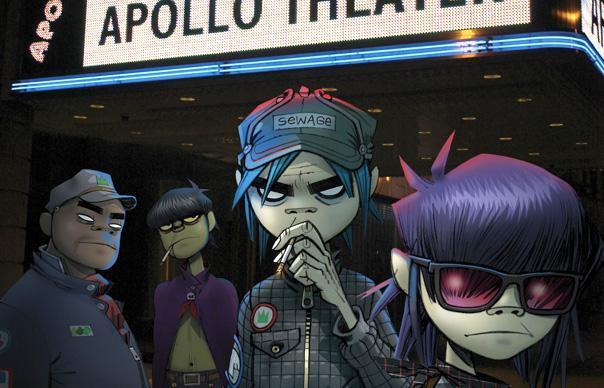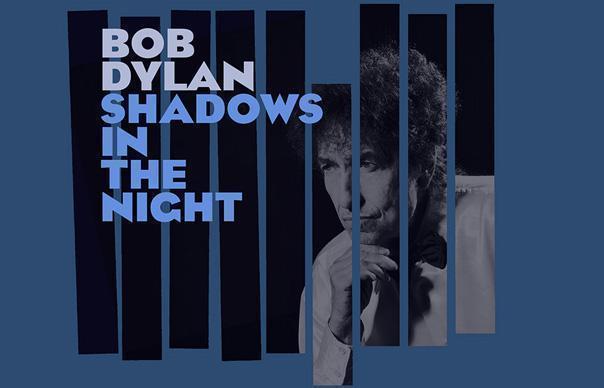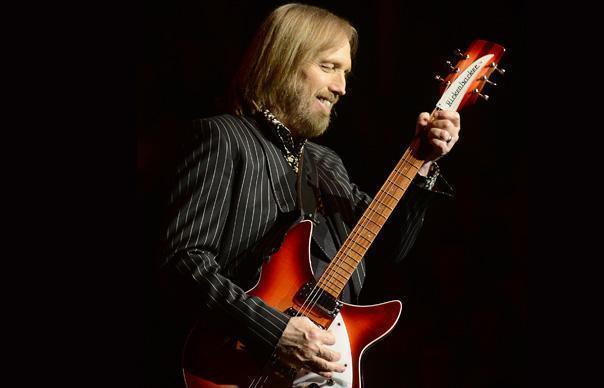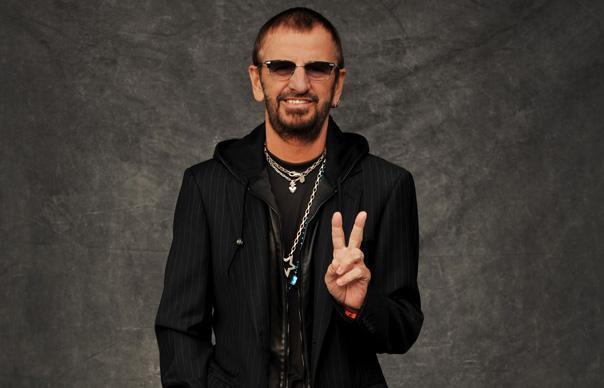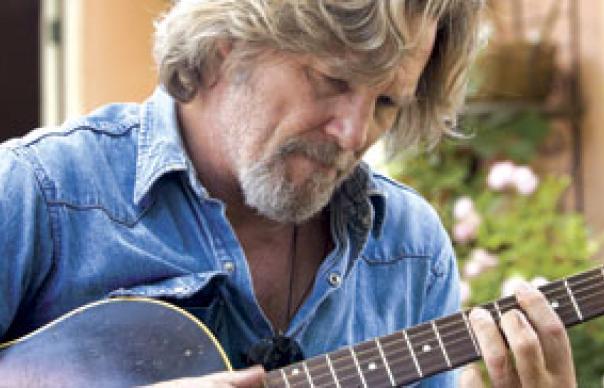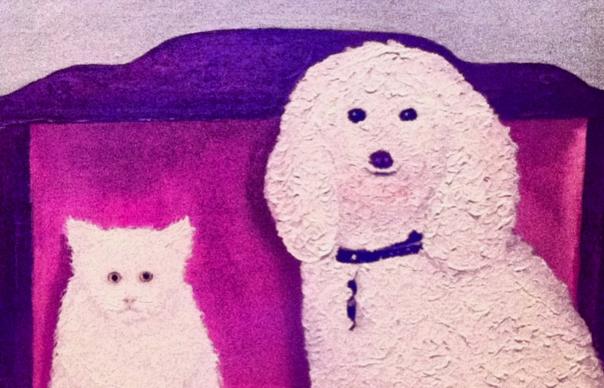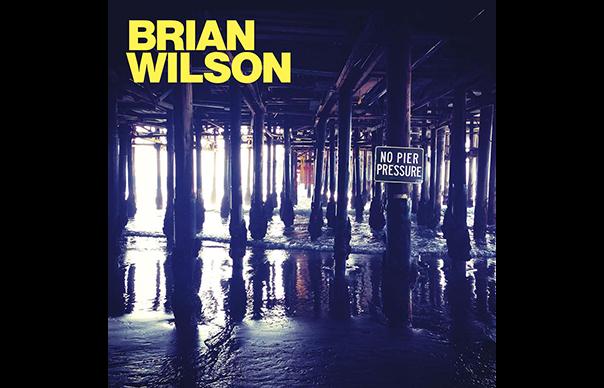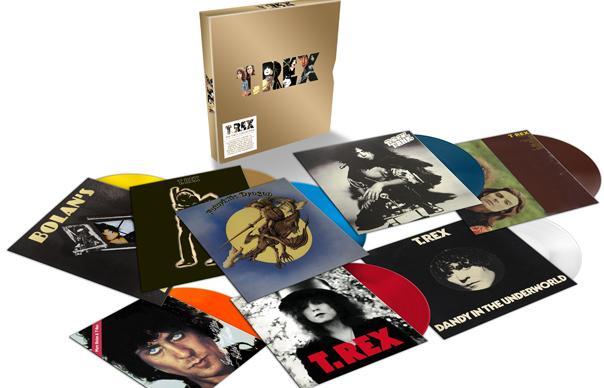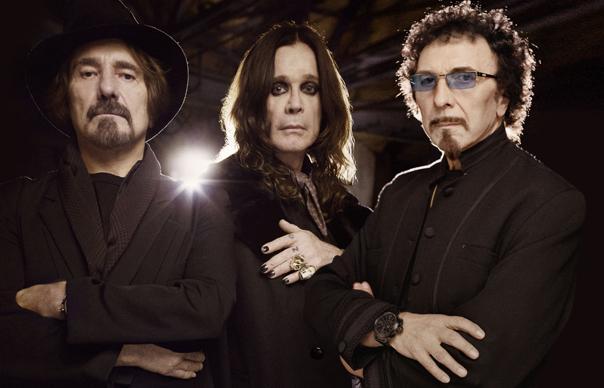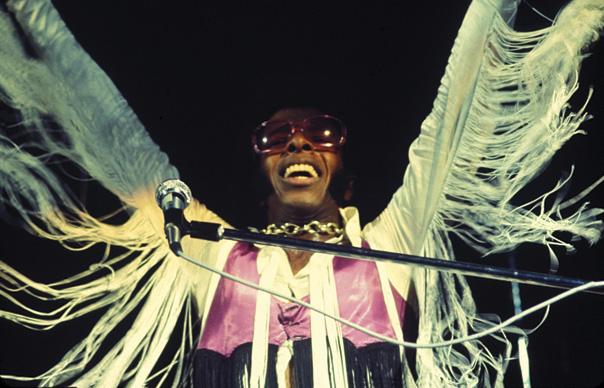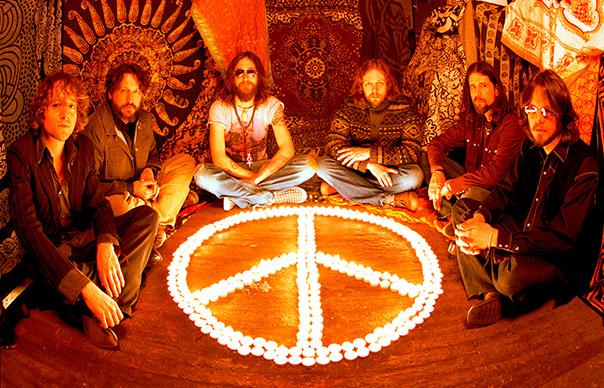Today (January 28, 2015), social media reliably informs me that Robert Wyatt is 70, which seems a reasonable justification for reposting this long and, I hope, interesting transcript of an interview I did with him at home in Louth back in 2007, a little before the marvellous “Comicopera” was released. It begins with Wyatt discussing, of all things, Big Brother…
I have no agenda, as they say on Big Brother. Gameplan? Me? No, I’m just here for the crack, man. Alfie watches it, I see it. It’s very uncomfortable viewing. Some of it I find unbearable. I can’t believe how rude people are to each other. Andy Warhol would absolutely love it, there’s so much Warhol in it, in terms of the concept and the practise, and there’s a lot of wit in how it’s done.
Did you ever meet Warhol?
No, although we did stay at the Chelsea Hotel and Kevin [Ayers] – so it must have been 1968 – went round knocking on the doors. He said, ‘I’ve heard this hotel’s full of interesting people. Are you interesting?’ He’d usually get a half-open door and someone saying, [American drawl], ‘Fuck off, man.’
His associates who I have met, little bloke, in 1967 when we were playing in the south of France in a long summer thing adjacent to a German beer festival, basically living on the beach. . . Grey, actually. People always think beaches are pinky orange, but this was grey with dirt. or was it pine needles? I don’t remember. Rubbish for sex, actually, don’t believe the adverts. Anyway, yeah, we were doing music for a play called “Desire Caught By The Tail” written by Picasso, I think. And amongst the people involved were people who I was later told were Factory stars and starlets. And they were very nice, very funny, and brought a nice alternative thing to the place. I mean, the French hippies were pretty hip anyway, but they were nice.
It strikes me that in a certain cultural world, there were few people you didn’t meet.
Well I haven’t gone out of my way to meet people. I think partly it’s because I have been at it a long time now. I’m in my sixties and I think my first paid job as a drummer was in 1963, so it’s been getting on for 35 yrs, hasn’t it?
44.
Is it really? And all that time, the first ten years certainly, was going round drumming. And it’s a social activity. Drumming is like being the engine of a car. Somebody else has to be the car, and so you do work with other people. I honestly didn’t know who they were then, I just thought they were these Americans. It was a long time ago, and I’m a bit confused.
Growing up, were you aware of the significance of hanging out with Robert Graves, or was he just one of your parents’ friends?
No, he was already an awe-inspiring giant, really. He’d been a friend of my mum’s in the ’30s, and I’d been on the loose for years. I left school at 16, I didn’t have enough exam results to go to university, and it was about seven years between leaving school and really starting to earn a living as a drummer. It’s like trying to remember a dream, there’s bits and pieces.
My mum said, ‘Have you got anywhere on your patch where Robert could park for a bit?’ And he said yeah. He’d got a tiny fisherman’s cottage, no taps, just down towards the sea. We used to go up to his house for a meal and stuff. I really liked him. luckily for me his son-in-law at the time, Ramon Farran, Catalan name, was a drummer, and Ramon’s father had worked in a Catalan dance band. Ramon was an expert drummer and sight reader and taught me a bit.
Robert you’d think, given his culture, if he liked other arts it would be classical music. But in fact he was a jazz fan. Not just a jazz fan, but he really liked Cecil Taylor. He’d heard Cecil Taylor in New York and had rushed up and embraced him at the piano onstage, he was so moved. So Robert wasn’t just stuck in a classical ivory tower. His fans may be, but he never was, so me and Ramon had that in common. And the fact that I wasn’t very well-read didn’t seem to bother him at all.
Surely you must have absorbed a lot of culture and knowledge living in the world of your parents?
Well not really. My dad had got himself through university, but my mum hadn’t been to university. My mother was a journalist. I didn’t know my dad ‘til I was six, ‘cos he was living with his first family until then, then he came and joined us. I was in a single parent family ‘til i was six. I had a dad for about 12 years, then he died when I was about 18. He had his classical music records, first half of the 20th Century stuff, and they did used to take me to operas, ballets and exhibitions, the Natural History Museum, the Horniman museum, stuff like that. But they hadn’t really got any money, and so I used to go abroad and stay with a family and their kids came and stayed with us. Both kids got a free holiday.
Because of having notionally Bohemian parents, maybe you were living the hippy dream before anyone had coined the phrase? I guess your life with Daevid Allen especially pre-empted what became a social phenomenon a few years later.
Well I don’t know. A lot of people acquired their sensibilities and their cultural orientation in the ‘50s before rock, Kerouac for example was a jazz fan. Like Andy Warhol, he was Catholic and quite straight, people aren’t quite what anybody thinks they are. In fact my dad was a working industrial psychologist, my mum was a working journalist, and it was a fairly straight upbringing.
It’s just that we had a lot of nice artbooks around the house and I struggled unsuccessfully through grammar school, which i absolutely hated. I couldn’t do anything. I wasn’t bad at English grammar, but funnily enough I couldn’t do English literature. I still like a bit of grammar. I like knowing where apostrophes go, it amuses me. Before that woman wrote that book [Lynne Truss]. . . I don’t like telling other people where they should go, but I enjoy them for myself.
I thought you’d be more of a Chomsky fan.
That’s just a lucky accident that he’s a grammatist. But I didn’t like Canterbury really. I got caned a lot when I was at school. I think that’s what put me off.
What for?
The first time was when a school prefect – what are they, eh? – said I was smoking behind the school bike shed, which I hadn’t been. I was caned for that, that really hurt. Then I started smoking. Then once in an art class they said, design a building. So I said, ‘these are walls which stop the ceiling hitting the floor, otherwise you’d get squashed,’ I just did a very basic thing. They thought I was having a laugh and the art teacher said I was making a mockery of the class. I was caned for that.
We lived near Canterbury Cathedral and we used to sing there occasionally, well every year. And once, in a casual moment of hubris, I wrote “Jesus Christ” in a visitor’s book and there was, sod’s law, a prefect behind me who reported me to the headmaster. I was caned for that.
Then when we got to the 5th form, the headmaster gave us boaters because he fancied we were a public school. We weren’t, but he gave us boaters to make it look like that. and I steamed mine up into a sort of cowboy hat, and I was caned for that, for letting the school image down in the town. Blimey, my bum was sore by the end of all that. It put me right off.
I was hopeless at school. I didn’t understand the lessons. I didn’t mind French, because I’d learned a bit of that from these foreign students, being sent to stay with them when I was 10 or 11.
It strikes me that all the way through Soft Machine as well you were a bit of a troublemaker?
I was always getting into trouble, but I’m not sure that’s the same thing. There’s a very good magazine called. . . not Green Onions. . . Pink Lettuce… Red Pepper, in which there’s a column called Born Rebel. Born Rebel; that means whatever is going on, you’re against it. I never was a born rebel, I think there’s something utterly meaningless about that, it’s totally posey. I never was. I liked my parents, I tried to fit in. Half my recording is an attempt to make normal records that sound like proper records, seriously, but what I do just doesn’t come out normal. That’s not deliberately trouble making.
I know that sounds coy, but it’s just. . . I’m not a born rebel. I’m very happy. When I joined the Communist Party, someone said ‘God, all that uniformity, don’t you mind being told what to do?’ And I said, ‘No, not at all’. Someone said, ‘You can’t paint that, it’s against the interests of the working class.’ I said ‘Oh, alright, sorry,’ and I tried something else. It doesn’t bother me.
But compared with later line-ups of Soft Machine?
Well I was stubborn. We were self-generating in a way what we did. What we did when we started out was unique simply because we all played. . . I dunno, how do you put it? We were immersed in the records that we liked, but what we played together wasn’t based on an attempt to sound like anything that we’d ever heard before. Whereas what became known as jazz rock and fusion in the 1970s was very much jazz musicians saying, ‘Cor, it’s not fair, all these rock musicians making all this money, we can play better than them, let’s all get electric guitars, play louder and then we’ll blow them all offstage.’
And then being puzzled when Peter Green and Jeff Beck and Hendrix still sounded better than them and getting even grumpier. A condescending attitude to rock on behalf of jazz musicians. I don’t want anything to do with that, and I just felt that as we crept into the ‘70s it was all, ‘ooh have you heard what so and so’s doing, have you heard the latest Miles Davis?’ I listened to these things, but the idea that that was what you had to do just seemed… I thought, where was what you were doing? Why not develop that?
I guess a common strain through all your music is that it’s easy to see certain music that you like – Miles Davis, say. But it strikes me that you’re incapable of sounding like Miles. So you have an idea of a Miles record, but the physical and mental processes that come out with your music at the other end are radically different – ie you use voice instead of trumpet. That’s what makes genuinely idiosyncratic and original music.
The drumming, of course I’d listened to drummers. To decide to play like Keith Moon but also to play like Jack De Johnette, you can’t, because they’re clearly not the same thing. Then also play like the James Brown rhythm section, you can’t. You can love all these people, and listen to them with awe and respect, but in the end what you come up with has to come from somewhere else, otherwise you’re caught between stools and you’ve got nothing.
OK, so troublemaker’s not right word. Before you had your accident, and before your solo career started in earnest, you almost seem ashamed of the person you were and the behaviour you indulged in.
Yeah well I thought in a way, with the band in the ‘60s, that it was being taken in a direction more and more that was competing with the current state of American jazz-rock. And I couldn’t or didn’t want to do that. There was this feeling that because I couldn’t read music, I remember the organist [Mike Ratledge] once said to me, ‘Why don’t you learn to read music?’ And I answered, ‘So that you can’t tell me what to play.’ I think that was probably the nail in my coffin as far as that band was concerned.
What about the drinking? Weren’t you on a different social path?
Well you’d have to ask them, because we didn’t talk about that. But we all know that young drunken men are a terrible pain, and the others didn’t really drink. They weren’t always kind or anything, but they were well-behaved, and I certainly wasn’t. And I may have been much more bolshy than I remember.
When you were on tour with Hendrix in the States and you played Winterland, didn’t you get into some scrap with Bill Graham?
Yeah he was shouting at us so loud, he was such a bully, I’d never heard anything like it, having not watched a lot of modern American films at the time where everybody does it. It was just a cultural difference.
What was he trying to get you to do?
I can’t remember. But I thought, ‘oh fuck this, I can’t play for this person, Ican’t work with this person, and obviousy part of the thing was Ididn’t realise how important he was. It was just another gig as far as I was concerned. I know now that he put on some magnificent stuff. I can’t remember the details, but he did say, ‘you’ll never play here again,’ which didn’t bother me; I’d never heard of the place anyway. I wasn’t interested in American rock, so I didn’t know the myths around it.
Didn’t you end up spending time in Laurel Canyon with Hendrix at the end of the second tour?
That’s true. The whole of ‘68 we were there with the Experience, and at the end of it, our group [Soft Machine] broke up basically. I hung on because Noel and Mitch and Hendrix said, ‘we’ve got this place in Laurel Canyon, it’s quite big, hired, swimming pool and there’s a spare room if you want to stay with us.’ I’d hung out more with them than with the members of the band I was in because they were all drinkers like me, whereas the band I was in didn’t do any of that stuff, they just went back to the hotels and were very sensible.
Anyway I really liked hanging out with Mitch and Noel and they were very kind to me because our band was on 200 dollars a week expenses, which didn’t leave a lot of money for hanging out, and Noel and Mitch always made it seem like I was doing them a favour by hanging out with them. Noel was a lovely bloke in particular. I realise now he knew I didn’t have enough money to have the fun I wanted to have, so he basically got me in everywhere as his mate, and by the end of the tour we were good pals. So I stayed with them.
Can you remember any specific adventures with Hendrix?
Everything just pales into insignificance compared with listening to him play every night. I mean, he was absolutely wonderful and I knew it then. It’s not a question of realising it afterwards, it was just eye-wateringly magical what he did. And the band. I learned a lot from Mitch, very underestimated drummer. He just played for Hendrix using all he knew. Drummers do tend to huddle together sometimes, I remember us both listening to Tony Williams and thinking, fuck, he’s younger than us, listen to that and being knocked out by him.
You know they say how Marley would transform a studio or wherever he was? Up would go the Lion Of Judah and the drapes and the candles and the iconography and the smoke, turning the whole place into some kind of temple. Hendrix in a very simple way would do that in his hotel rooms, turn them into some curious little temple of a hitherto unknown sect. Not in a po-faced way, he’d just transform it into a magic little room. and he’d play the records he liked, which were hard, heavy funk records. The nearest I can remember to rock that he ever played was Sly Stone. He was very shy and polite. Extremely so, courteous to a Victorian extreme.
You talk about drinking a lot. Did you take drugs with him?
I didn’t take drugs no, I just drank. I’ve always found that since you can get completely out of your brain on legal drugs, why bring the law into it.
It’s you not being a rebel again.
I don’t like breaking the law, it embarrasses me. The idea of hanging round policemen is so dull.
Did you never take acid once?
I don’t think so. I think I may have taken some substitute – was it TCP? No, that’s what you cure cuts with. Knowing me, I probably did take TCP! Thinking, phew, I don’t fancy these hard drugs. I didn’t understand it, and also I didn’t like drug dealers. I found them very sleazy sort of people. I didn’t like it at all. And I associate certain conversations with rooms full of drugs, like [whiney US voice] ‘what sign are you?’ and, ‘do you like The Doors?’ And the record would be the Grateful Dead always. Was it always the same record? Who could tell? I got claustrophobia in that atmosphere.
The thing I didn’t understand about white American rock was that they were loud folk bands. Whereas the English scene was much blacker. Even before rock’n’roll, the trad jazz musicians had this fantasy New Orleans that they took around in their heads. The modernists had an imaginary Harlem in their heads – which I still have. And then James Brown, that was our thing.
There were two different cultures in America, which were black music trying to get in to the mainstream, trying to belong to other Americans, and white kids trying to get out of the mainstream and not belong. A lot of black Americans wanted to dress smart and look respectable to show that they could, and they were embarrassed by the way that rock picked up on blues and what they considered to be their illiterate roots, a bit like Wynton Marsalis now considers hip hop as a misuse of their own rural heritage.
I’ve never felt anywhere so dislocated culturally as amongst liberal white American friends. I just kept missing a step and feeling that there was a whole chunk, of what had made me what I was, was missing. I was much more at home in Paris or Milan.
You recorded with Syd Barrett.
Well he asked us. I was really surprised, but we [Soft Machine and The Pink Floyd] were two bands that played in the same places that weren’t playing “In The Midnight Hour” and stuff – because neither of us could play it very well, probably.
You get curious about the other one. I liked working with people from the Floyd, because they were the other, they were so different from us. We would play 100 notes, as many as possible, and they would play as few as possible. I would try and do the most complex rhythm thing. Nick Mason would just hit a snare drum and wait for the next interesting beat to come along. We were so different, and I was fascinated by that, and I was very pleased to go and do “The Madcap Laughs”. I think it’s a lovely record.
What was Barrett like at the time?
Very polite, quiet. I didn’t know he was meant to be mad or disturbed or anything. He just seemed very well brought-up and polite, jolly good songs – that’s all I knew.
You must have played the UFO Club a lot with the Floyd?
We did. I remember the dressing room at UFO was very small, with benches either side, and The Pink Floyd had incredibly long legs, so their legs would come across and sort of cross each other in the middle like the giant scissors they did in “The Wall”. They were very kind to us. we had crap equipment that tended to blow up. They had good equipment – they were never poor – and they would let us use their gear, which was actually quite unusual in those days. Very nice bunch of people, I always liked them. But in all the din and racket, the traffic jam of it all, I can’t say I have intimate knowledge of any of these people.
What about Keith Moon? You drank with him quite a lot?
Yeah I did. He took me down the blissful road to hell several steps at once in the Scene Club in New York. Hendrix and I used to go down there. And there would be Keith at the bar. And if you went to the bar to get a drink, his arm would go around your neck and say, ‘what are you drinking? Look, you want this, never mind that other stuff. Try this; Southern Comfort.’
I’d go, ‘it’s a bit sweet.’ He’d say, ‘yes it is, so what you need now is a tequila,’ and we did it with the salt and lemon. I’d say, ‘oh that’s a bit salty.’ He’d say, ‘yes it is, so what you now need is another shot of Southern Comfort.’ And he taught me how to get completely blasted very quickly, so within 40 minutes you were on another planet. Thanks Keith, I enjoyed it, but it probably wasn’t good for me in the long run, and it certainly wasn’t good for you, old son. But what a nice man.
Why wasn’t it good for you in the long run?
Well I obviously did get into trouble as a drunk, but you’d have to ask the people that were upset by it.
Was that what you were drinking the night of the accident?
What i remember is mostly punch – what on earth is that? – but Kevin [Ayers] I think brought out a bottle of scotch whisky, and then I felt like I was flying out of the window. Turned out I was [laughs]. It wasn’t just a feeling. That’s all I remember about that. Only people who’ve been that drunk know – in fact the English do know now, we’re a nation of binge drinkers.
Did it stop you drinking?
No. The first thing we did when I got out of hospital, Alfie wheeled me off to the pub and we had a drink. We were penniless when I was in hospital. I was staying in a flat of Alfie’s on the Harrow Road which has now been demolished. It was on the top floor, so we couldn’t go back there. We were really broke – we had about 15 quid. A couple of people sent us money to the hospital, the first one Ronnie Scott – 100 quid I thnk – Alfie’s dad Ronald and then the Pink Floyd did a benefit for us for a few thousand.
We’d just heard about it and it was fantastic for us. What are we going to do when we get out? So we went out and got drunk, and when we got back in, Alfie was reprimanded for being drunk in charge of a wheelchair.
No it didn’t stop me at all. We both used to drink a lot, me and Alfie.
When did you calm down?
About two months ago. I finished this record and then I stopped. I’ve had about six relapses, which sounds like a lot, but it’s fantastic for me. I just tried to write a tune the other day and I can’t remember writing a tune sober ever before. I may have done, I can’t imagine it. I couldn’t imagine normally even sitting down at a keyboard without the bottle of wine on the left hand side and the packet of fags on the right hand side, Fats Waller style.
Would you describe yourself as having had a drink problem all that time?
It seems like I had, yeah. Answering the questionnaire for alcoholics, it turns out I’m one of the unlucky ones who’s an alcoholic, yeah, so it turns out I can’t drink moderately or anything. We’ll see how it goes.
What about smoking? It’s two days to the smoking ban.
Well yeah, we’re going to have to do that. Alfie’s really desperate to give up. But one step at a time, let’s get this record out and get back to domestic solitude and we’ll give it a go. But I don’t want my nerves to be snapping for a fag if I’m meeting people.
It’s incredible, looking through 40 years of photos, that you’re always smoking.
People ask, ‘how many do you smoke?’ And I say it’s the wrong question. The answer is as many as possible. If there was a mile-long cigarette that I could just sort of have suspended in front of my mouth, it would just go straight into my mouth in the morning and come out at night before I go to sleep.
You signed to Virgin in ’73?
They came to see us when I was in hospital, ’cos I don’t remember the details but I’d started working on stuff, moved in with Alfie, we’d been together for a year or more.
You’d gone to Venice with Julie Christie?
That’s right. Alfie was working on that film and I was at a loose end. Alfie got us a keyboard so I did some stuff there and a bit more in her flat. But anyway they came along and said, ‘we’re signing people up, this record company’s fairly new, and you don’t have to make singles, you can just make an LP.’ So I worked towards that, came out of hospital and got a few friends together.
I hadn’t really worked on my own before, though people think “End Of An Ear” is the first solo record, really the first solo record is “Moon In June”. I knew I could do it at a push, but I didn’t have the confidence in the studio. We were a live band, I’d been in live bands all my life, really. We were rarely in the studio. So I asked Nick Mason to come along and cast his professional eye over the proceedings, which he did, and then Mike Oldfield was already in the building because the paint on “Tubular Bells” was still wet and he was still hanging about and he’s a lovely lad. I played with him in Kevin’s band. That was good fun, and Lol Coxhill. Lovely band. Mike helped a great deal, so between them they held my hand through the record.
You seem to flourish as a collaborator with friends, but not as a bandmember.
That’s exactly right. I say this as a joke, but jokes don’t work if they’re not sort of true, but the trouble with a band is I can’t take orders and I can’t give orders. So there’s no comfortable role for me in a band, whereas on a project – if I’m working for Carla Bley or Mike Mantler or Nick Mason or whoever – I think, well, if they’ve asked me I shall try and do whatever it is they’ve imagined me doing. As close as possible. There’s no pressure on me. I try and do what they want.
I also like the idea of projects where certain different people are appropriate. On “Rock Bottom” I was able to use two bass players; Hugh [Hopper] on tracks that I thought he’d be most comfortable on, and [Richard] Sinclair on tracks that I thought he’d be most comfortable on, whereas if you’re in a band you cant really do that. If you’re in a band with a guitarist and you’ve written four tunes that don’t have a guitar on he’s gonna get pissed off, and so the rock group format always seemed a tiny bit trapped to me I now realise.
I mean I enjoyed it very much, and maybe if I’d not been drunk and behaved myself better the Soft Machine thing could have gone on – well, I’m sure they were happy without me. I remember Charlie Haden was asked about working with Ornette Coleman. He was asked, ‘how did you feel when he started using his son Denardo on drums when he couldn’t play drums? Cos I know Shelly Mann and people were very shocked.’ Charlie Haden said, ‘you don’t think like that. With Ornette Coleman, you get up and you play what there is to play. Where you hear something, you play it. You don’t sit around judging what the others are doing, you just try and go with it.’ I think thats part of Ornette Coleman’s thing, his harmolodic theory, if everybody does what they do, and listen to everybody else, it will come out as some kind of harmony. Don’t worry about it, just let it happen, don’t get personal, don’t get anxious, just do it.
Maybe that’s why your records sound organic. It’s lovely how they sound very crafted and thought through, but there’s also a spontaneity and a value of error in them.
I’m very interested to see what happens. I respect what other people are doing even though I choose them knowingly, and I’m very interested in that. It seems to me a thing that we’ve got . I always thought it’d be a very good thing at the Tate Modern if there was a load of artists, one was given blue, one was given red, and told do a painting, and they each did their thing. I think that’d be really interesting. Musicians work like that as a matter of habit and I like that.
The levels of craftsmanship of the people I choose vary enormously because it’s not for the instrument they play or the style they are, but what kind of company they are. I might ask Fred Frith and he might play violin or piano, but it’s Fred. With Brian Eno, you never know what he’s going to do, if he’s going to do anything at all. He might just drop into the studio and think of something to do, and I’ll always go with it. The craftsmanship to me is that someone’s got to take responsibility for it, so with the final record I believe in a sort of benign dictatorship, you won’t be surprised to hear given my politics.
Benign’s not a word that always comes to mind, but certainly dictatorship. I will edit ruthlessly ‘til everything sounds good to me, simple as that, ‘cos my name’s on the cover. The buck stops here, as it were. I always try and treat musicians with respect and give them their moment.
That “Rock Bottom” was partially written before the accident is fascinating, because it’s so often stereotyped as a post-traumatic record.
It’s a funny thing, I always feel embarrassed to say this, but I don’t mind being in a wheelchair. There’s aspects of it that I find quite novel and entertaining. I didn’t see it as a record about a tragic trauma . It’s actually quite euphoric, it’s an equally melodramatic image I suppose, but to me it’s more like the phoenix out of the ashes. Just having the nerve to play my own keyboards, having played with all these brilliant keyboards players and just trying to get away with it was exciting. I had done it before on a couple of records, but taking the whole responsibility for the keyboards and setting the tone on my own was sort of exciting really.
My interpretation is it’s about the possibilities of love. What someone who loves you will do, and the gratitude that comes in response.
That’s much more like it. I’d been with Alfie a couple of years, and I’d been quite rotten to her while I was in hospital. I remember another bloke next to me, his fiancee kept visiting him and he was horrible to her, he kept saying, ‘bugger off, I’m not interested in you any more, I don’t care,’ and what he was actually doing was setting her free. It was a very brave little thing he was doing. They were much younger than us, and he said, ‘she’s not going to have babies or anything.’ Me and Alfie had already been married before, we’d had about three decades each of bipedal life. I say it’s alright for me, but for a lot of people they come out of hospital and it’s not alright at all; there’s no work, nowhere to live, they can’t go anywhere, they might be stuck with their parents who they don’t get on with, all sorts of terrible things. I had Alfie, and Alfie with her friends really helped.
I felt more like life was making sense afterwards than it had done before. I was actually very unhappy through the ‘60s, to be honest. Being thrown out of Soft Machine, the damage it did to my confidence was far greater than the physical damage of breaking your back. So coming out and being with Alfie and working with people that I really got on with, I mean feedback was nice and all that stuff, but it was like being washed up on a really nice desert island from a ship that had come from a port in a grubby cold northern town. It’s terrible, but it’s not that terrible [laughs]
Maybe with the exception of “Old Rottenhat”, “Rock Bottom” is your least playful record. And no matter how serious the issues you’re dealing with, there’s usually a playfulness.
I accept that completely. Alfie has suggested a couple of times that in fact I’m much sadder and more traumatised than I make out or than I allow myself to think. I don’t know. How can I know if I’m kidding myself? If I’m kidding myself, almost by definition I wouldn’t know, would I? My concern isn’t so much with the meaning of things, as with how to play the bloody things and get the music right. And it has no relationship to any other kind of meaning. Music has its own meaning to me, its own demands, and just trying to get the records to sound as right as I can for what feels right is almost without connotation to me. It’s almost a different dimension to me from daily philosophising and anxieties. Consciously, all I’m trying to do is make the most listenable record I can, and that’s all I know about.
So what happened after “Ruth Is Stranger Than Richard”? Maybe that was a more typical Wyatt record than “Rock Bottom”?
Yeah well also I wanted to thank some of the musicians who played on “Rock Bottom” and give them a bit more time in their own right. I did a whole Fred Frith tune on “Ruth”, I gave Gary Windo a whole solo feature on it. It meant a lot to me at the time. I was just doing what came naturally. What went wrong after that was the deal with Branson.
Because they wanted you to make more “I’m A Believer”s?
I don’t know. The way deals were in the end, you have to make so many albums in so much time and I thought, ‘Blimey, I don’t know if I can.’ I hadn’t been a songwriter – I’d never claimed to be, so i didn’t know how many records I could make. They just said, ‘Do you want to make a record when you come out?’ I said yes, but it turned out I’d agreed to make five in a row or something. I thought I couldn’t do that, they’d been paying me a minimum weekly wage and I stopped it, but then after doing that album and a couple of singles, I was in vast debt to them, the way they worked the money, because they didn’t share the cost.
You had to pay for everything out of your advance, but you had to use their studio, which were very expensive. You had to sign to Virgin Publishing, and any profit you got, you couldn’t get it until their subsidiary companies had recouped their money from your project. So if you wanted to make another record, you were just getting further into the debt you hadn’t paid off. So I thought to myself, I’m not going to make another record until I’ve paid off the £16,000 that Virgin have charged me so far. I don’t like living in debt, I can’t bear it, I don’t want to owe money. I just thought I’ll make another record when I’ve paid that off. And indeed about 15 years later they went even. But it’s a very hard way to earn a living [laughs].
We hadnt got any money out of Soft Machine ‘cos that was a racket, so we were still a bit stuck and it wasn’t really until I met Vivien Goldman as an acquaintance of Brian Eno’s and she introduced us to Geoff Travis that I found a way of operating on our scale without those kind of rules, and Alfie by that time was so horrified by the economic cowboy culture of rock’n’roll that she and Geoff worked out a much more humane deal where I was able to make a decent living without having to sell rock’n’roll type numbers of records.
Maybe Richard Branson, for all his hippy airs, was always a venture capitalist, whereas Geoff Travis and the post-punk indie model was. . .
To me, Geoff is still an idealist, he’s a lovely man. They’d get into hot water and they weren’t always the smartest machine out of the lot, but they always had a good heart. I like Branson, we got on fine, and as he said in his hurt way, ‘well our contract’s just the same as anybody else’s.’ I thought well yeah, I suppose it is. We never got any money out of anybody else, either!
How did you feel about stopping making music?
Well I didn’t. I did various things for foreigners, French and Italians, then Carla Bley got us on to some Mike Mantler records and Nick Mason got us singing, and there were a few things with Brian Eno like “Music For Airports”. So I was doing stuff but it just wasn’t necessarily LPs under the banner of my name.
It’s ironic that after all the collaborations on the early solo albums, the next were the most authentically solo records of your career.
Well partly that was because of simple things like I don’t really like expecting musicians to work for nothing. Studios are very expensive and I like to pay musicians MU rates, so that prompted me to do as much as I possibly could myself. So that was one thing, and also not being in circulation with a group. My record collection by that time, what I was listening to, was so far from even the alternative rock mainstream. I was listening to Bulgarian music, Cuban music and Radio Moscow and black Londoners, a lot of calypso. I was very very far away from anything being covered in NME at the time.
Did you socialise at all with old comrades?
No, not at all. We used to have meals sometimes at Nick [Mason]’s place, and that was very nice. Nick’s always been a good pal. But it was quite difficult because there’s a lot of places that a wheelchair won’t go in in London, but Alfie learned to drive when I was in hospital, so she had a car, and a friend of hers who was a model, well-off, gave her her little car. We didn’t socialise with other musicians. Most of the people I used to meet at that time, we would be going to things like Ken Livingstone’s GLC events, go and get plastered on Cuban rum at a Nicaraguan solidarity meeting, or we would go to Kurdish nights, things like that. And a lot of people in the party. I’d be more likely to go and see Tony Benn speaking at a rally than going to see a group. The Anti-Apartheid movement took up a lot of time.
Is this why you were drawn to cover versions?
Well Geoff said make some records, and I hadn’t really been writing many tunes. Elvis and Frank Sinatra didn’t write any tunes, so obviously it’s possible to just be a singer and do tunes that you love. So I started doing a few of the tunes on the record that I’d been listening to that I could do. Apart from French, I always liked the sound of Spanish, so I did a few songs in Spanish, and got my friends to play and we did it our way.
And with your voice they’re never going to sound like a facsimile. . .
It’s funny, that, because that is the case. I don’t particularly try to change things. So when I did “At Last I’m Free” by Chic, I actually followed the women’s phrasing almost exactly, almost every little twist and turn. But I just don’t do the American accent. The tempo is almost exactly the same as the original and the structure is the same, as far as I remember. I’ve actually done literal cover versions where I’ve recorded the tune on one track and just covered it, and taken away the original, and even then people don’t recognise it.
Maybe the first time I heard you was on “Shipbuilding”. Were you aware that that record introduced you to another generation?
“Yeah, it was a confirmation of having met some of these people via Geoff. Incidentally we made the singles because Virgin had refused point blank to let me make another LP for anybody else because I hadn’t fulfilled their contract, so Geoff said ‘let’s make singles’. So we did and then they put them together on an LP [“Nothing Can Stop Us”], which was a bit sneaky. I think Virgin realised it was just pride on their part, because it wasn’t much money. I don’t sell a lot of records, the same sort of amounts as a folk act or a jazz act, but not a rock’n’roll number. No record company is going to stand or fall on my income. It’s just enough for me as long as I can get my cut, y’know?
“Old Rottenhat” was pretty much all solo songs.
“That was pretty much all a solo LP. I played everything, and “Dondestan” was also totally solo in terms of performing. And I’ve done bits and other pieces on my own.
In the middle of that period you must have moved up here to Louth?
Late ‘80s, Alfie said, ‘I don’t want to die in Twickenham’. I thought, yeah, I know what you mean. So we started househunting, and it’s very hard to find a place for sale that’s wheelchair-accessible in a town that I can use. But there was one and this was it.
Looking back, it seems very odd to come here, given the cultural and political life you had. From the global perspective that you were living, to a county [Lincolnshire] that’s about the whitest in Britain.
Henry The Eighth called it ‘this brute and beastly shir’e, hanged a few recalcitrant Catholics and went back home. He’s not entirely wrong, but he’s not entirely right. I’d better not say I know what he means ‘cos they’ll read it, wont they?
You’ve said before that this place could do with a few more asylum seekers
It could do. There’s a village up the road where they’re saying ‘we don’t need any Kosovans here’, and I’m looking at the women thinking, ‘oh yes you do’. And I’m quite happy to be quoted on that.
However it has become more cosmopolitan. I miss London life, the cosmopolitan thing, and we do go back there several times a year. We don’t have anywhere in London any more – in fact we’ve just lost the last hole in the wall which we had which was in Bermondsey, where it’s being yuppiefied. We can’t afford that any more, so I’m not sure what we’ll do.
It’s a local joke that life is cheap in Lincolnshire, and we can have a house here for the price of a flat in the south. I can make all the racket I like and no-one’s going to bother about it. There’s an alleyway to the right, there’s this entrance hall to my left, there’s Alfie’s studio upstairs, the back of our house behind me and a car park in front. It doesn’t matter what time of the day or night I play and I’ve never had that before. So in terms of working and living in a place where I can get everything I want just around the corner, it’s like toytown but it’s even smaller than that. Where we live, the centre, it’s like the imaginary community in a child’s play train set, and I’m as happy as a sandboy just bowling around town.
Everyone seems to know you.
Well you know I’m just one of the local derelicts that hangs out. I like buzzing about town, it takes me away from the prison of the keyboard.
Is it fair to see the last three LPs of a piece? They seem to sit together as a sequence.
Yeah I think what I found, funnily enough, is sometimes you get what you want when you stop trying to get it. What I found with the last three records was my sort of imaginary band. It’s a lovely band because it’s not any band that could exist in real life on the road or anything like that. It’s a basic team, people come and go, but it’s only once every few years and I ask people to come in. There’s Annie Whitehead, Yaron Stavi on bass, Gilad [Atzmon], that’s the core. Then people like Phil Manzanera and Paul Weller do cameo roles – well a bit more than that really, and it’s so nice, a bit of a different context for them and I hope not too uncomfortable.
And extra guests come in, like on this one Orphy Robinson the vibes player, Monica Vasconcelos. This sort of imaginary little group are so warm and friendly feeling. They’re as much about how that little relationship has developed as anything else. It’s got a slightly – I don’t want to presume on their own preferences – but subjectively it’s a bit like a little musical family. Matching Mole was a bit, but it was so fraught trying to keep that going as an organisation, and I don’t have to do that with this one.
Do you have an aversion to rock guitarists?
I think I do, but I’ve worked with a lot now; Mike Oldfield and Dave Gilmour and Phil Manzanera, I love these people. I think what it is is I can’t really play guitar, I do a bit on this record and I have done in the past, but it’s like being a wino and not being a beer/pub person, because I associate English rock with the football, the beer and the pubs, it all goes together and I’m not a beer, pubs and football person.
The rock guitar thing to me, I’d already formed my tastes before that. I’d got so used to chords played on keyboards, so the dance pop music that I like would be Allen Toussaint, New Orleans, Lee Dorsey, Booker T, and the English soul bands like Georgie Fame and Zoot Money rather than the guitar thing.
I never really got the guitar thing, I can enjoy and appreciate the whole English rock tradition, and the Anglo-American one, and it’s swept the world as one of the most universally popular musics. But I seem to have formed my inclinations away from that, and i’m really grateful to the rock guitarists I know. They’ve been really helpful to me, Phil particularly, he’s been an absolute saint. But at the same time it’s not my instrument. On my solo records there are no guitars.
So how do you characterise these three records? “Shleep” is the return to the band?
Yeah they’re band records, they’re the records by some sort of imaginary band, and I try and give everyone a shot. For musical reasons, it’s an Ellington thing, everyone gets their moment. It’s not a philanthropic thing, it’s to do with giving life to the music if every character on the record has a moment that’s clearly theirs, it helps me listen to the whole thing. And the rest of it is variations of ‘bloke on his own with keyboards’, plus imaginary band. Sometimes it’s more ‘bloke on his own’, and sometimes it’s more like a band.
I think they [the last three LPs] have something in common; I’m a middle-aged bloke, a lot of blood’s flowed under the bridge now, and the other thing they have in common, and what’s helped me make them, was that Alfie really put the pots on when it came to helping me with words and stuff. I mean, she didn’t just write the words to “A Forest” on the last record, she also had the idea of the line that Brian Eno sings behind it and which she sings a bit. She wrote a tune, like the “Lullaloop”, so even the solo records are duet records in a way, me and Alfie. It’s whatever we can do together.
I like the different way we do words. The whole first third of the new record has none of my words on it. When the second section starts with my words you think, oh it’s him again.
There’s something incredibly English about your music even when you’re playing Italian or Spanish or Cuban songs.
I hadn’t really thought this through ‘til a while ago. I met Billy Bragg a few times ‘cos he came up here to record at a local studio. In fact I did a tiny harmony part on a record he’s got coming out, a really nice song, and then he came again to do a book reading from his book “A Progressive Patriot” in Lincoln, and me and Alfie and my son Sam and his wife went. It was very nice. And he was upset because his home patch, Barking, his working-class roots. . . I think a BNP councillor got in round here somewhere, funnily enough right near the hospital. If the Africans and Muslims left the place would collapse actually, Gawd, thank God they’re here. What an insult to them, I felt quite ashamed about that.
I am totally English, I’ve looked up my roots. On the Ellidge side, which is my dad, it’s Lancashire, and on my mother’s side the Wyatts were originally Staffordshire farmers. And on both sides there’s quite a lot of Welsh, which is ancient British if you like.
So here I am, I’m English. The music I listen to is continental, I was brought up on English children’s books, y’know Lewis Carroll and Hilaire Belloc. I love the lyrics of Noel Coward. In fact I even like – because of that wonderful film and because my brother’s an actor and used to do them a bit – I even like Gilbert and Sullivan. You cant get more English than that, as far as I can see.
But it also doesn’t get more English than Suggs and Ian Dury – there’s a whole Englishness, Billy Bragg indeed, which I’m very happy to be. The only time I feel the need to be defensively patriotic is in comparison with the United States, where people often say, ‘how come Blair fucked up so much in Iraq and Margaret Thatcher, by her own terms, didn’t fuck up in Argentina?’ Well it’s because Argentina had nothing to do with the fucking American army, that’s why.
I remember James Brown being asked if he resented the Beatles. He said ‘No, they introduced white America to our music, and that makes me feel patriotic.’ Northern soul? Good lads.
“Cuckooland” especially, seems quite rural, with things like “Tom Hay’s Fox”.
Yeah you’re right, it’s landscape. Also as a child I did listen to that small group of English folk songs that my dad used to play on the piano. My dad had a friend called James Reeves, and they were very much of the Vaughn Williams generation who were disinterring English folk song. Reeves was a poet and he used to put the dirty words back into the folk songs that the Victorians had expunged to make it parlour music.
I used to see Benjamin Britten and Peter Pears the tenor singer. He had a vibrato funnily enough, not unlike Coltrane doing ballads [imitates pears]. He really got to me. On “Rock Bottom”, it was being able to slow the vibrato down to that pace that really got to me. Plus some of the songs that my dad used to sing, probably the first song I ever sang was “Foggy Foggy Dew”, which is a much dirtier song than the Victorianised version.
But I realise now, this is the point I would make, to the BNP and people who go on about their culture being threatend by alien things; no-one has allowed and welcomed, as a xenophile, non-English cultures so wholeheartedly into their lives and into their brains and into their food more than I have. And yet I don’t feel the slightest bit compromised or diluted or melted as a human being. I’m as English as my Staffordshire great-grandparents.
As my Lancashire dad would say, ‘What the fuck are you all scared of?’ What kind of wimps are you that the man standing behind you in the checkout queue is wearing a turban, how does that threaten your identity, you twat? Get over it, for fuck’s sake, what are you on about? And further than that I’d say its amazing how people who come from other countries, you’ll find in two or three generations their children will become so English.
Have you heard or seen anyone more English in the way they talk and behave than Julian Joseph or Courtney Pine? I don’t think so. Two more polite English boys – the Mondesir brothers. And if you meet black French people, they’re so French.
I saw a young woman being interviewed by John Snow, she had a scarf round her face and he was saying, ‘I want you to take it off so I can see what you look like.’ And she was so polite and coy – I could see why he wanted to see her, she was obviously very good looking. She was probably thinking, ‘Actually John, it’d probably be a good idea if you had a scarf round your mouth,’ but she was too polite to say that. But the way she demured, her modesty, she was very educated, was in a way quintessentially what the paranoid nationalists think of as the English behaviour which we’ve lost. She was the quintessence of it.
So after all I’ve bombarded myself with and absorbed, happily, of enemy culture, alien culture, it’s left me just as English as the day I was born, and I don’t think anyone else is threatened, because no-one else has done less to protect his Englishness.
But on this new LP, in the last song of section two – you sing “You’ve planted an everlasting hatred in my heart.” It’s as if you don’t want to use English as a language any more. A sign of disgust.
That was a reference to when I started making singles with Rough Trade. I’d joined the Communist Party, and I didn’t like the way that the Anglo-American rock culture seemed to assume that it was universal, when in fact it was quite exclusive. So I was trying to sing songs from other places. But I think everybody knows that now. Most people know that there is a Baaba Maal, that there is bhangra. It’s not an issue.
Those words were written by Alfie, and it’s a kind of response to a slow burning thing where I try and contain myself, but where the exasperation does come out. It comes out not from wishing to disassociate myself from the actions of our governments, but from the moralising cant that goes with our global stand. If people said, ‘look our oil’s running out, we’d really like to have control of most of it, and we can, and voters will be pleased that we did, so that’s what we’re gonna do.’ You’d say well, fair enough . But they never say any of that and it just exasperates me.
Certainly we are at war now, two brutal wars, one either side of Asia. But the English-speaking people, if you include the United States and the Australians, they’re interesting because their whole culture is based on the obliteration of an existing culture, the most successful ethnic cleansing campaigns of all time, far more successful than Hitler – which was thank God a failure. No actually I retract that. Those six million Jews will always be missed.
Susan Sontag said, ‘People can moralise in politics, but in the end morals in politics is about empathising with the other,’ and instinctively, culturally, that’s what I’ve always done. It’s to do with a craving – it’s not so much a principled stance, it’s much more primitive and animal than that – it’s a craving for biodiversity, cultural biodiversity as much as anything else, and a fear of cultural incest.
But the point is that, during my lifetime, the English-speaking people have bombed about 25 countries. That’s to say once about every two years we have dropped bombs on a different country. and if you include Israel as part of ‘the team’, the destruction of Beirut.
Lincolnshire is bomber county, so I wanted to link the obvious innocent, heartfelt and well-meant patriotic fervour of the bomber pilots – of whom we’re terribly proud, quite rightly, since World War II, having their innocence and dedication abused time and time again. Harold Wilson very wisely, and we never really give him credit for it, kept us out of the Vietnam war, pissed the Americans off a lot and did himself a lot of damage, but he did it. And of course Blair should have done the same.
Criminals are criminals. Murder is a crime. Mass murder is a big crime. Get ‘em, put ‘em in prison, do what has to be done. But bombing and destroying cities is not the answer. If you’re saying they’re dictators, then they weren’t even chosen by the people, so why are you fucking punishing the people? You’re more justified in bombing a country where brutal leaders are elected, because you know half of the people actually voted for them.
Anyway, I was quite shocked when I read Alfie’s lyrics, ‘cos the word ‘hatred’ is a hard one to sing. So is the word ‘love’, with any sort of full human resonance. But she just was so shocked in direct response to a woman looking at bewilderment at her home in Beirut. I’m not a journalist who writes about daily events. Anything I do, the specific trigger has to have some long-term non-specific resonance, so it seemed to me legitimate that anyone who had been bombed like that might be feeling – including the people in the office blocks bombed by Al Qaeda – that they’re going to hate them for the rest of their lives. It’s not just a partisan song to me. Bear in mind that if you’re going to do that to people, unless you’re going to obliterate them, the idea that you can obliterate independent Arab cultures into oblivion of subservience is even less likely than the apartheid regime obliterating the various African groups in South Africa.
Historically, inevitably, people will grow up, take on some of the characteristics of the colonising force, and eventually assume their powers, because there’s more of them. This is what happens with empires, this is why they implode. What Israel has to hope is if the indigenous people reclaim their territory, their leader is a Mandela and not a Mugabe. But you do stuff like that and you are not winning hearts and minds, mate. What do you THINK you’re doing?
What’s frustrating is the worst things that are happening aren’t filmed – the daily humiliation of the Palestinians having their water supplies drained away for swimming pools. It’s a general world thing; the children and the families of your victims will rise up, and they won’t like you very much. And I wanted to disassociate myself entirely from the English-speaking trajectory abroad because I don’t think it’s going to change in my lifetime significantly. so I said OK. It’s a symbolic thing.
The middle of this record’s chunk is England, and it’s not all bad. I love the bit in the middle with Gilad and Orphy Robinson doing their little duet, there’s nice tunes and a good laugh, and the scepticism and grumbling. But at the end I think ‘oh fuck, I’m off,’ and the last chunk is all about different ways of getting away from the mainstream, whether it’s avant garde or singing in a foreign language or singing surrealist songs or whatever
What about “Beautiful Peace”? I can’t recall a song in your history quite like that, a naked guitar song?
I think it’s simply because the tune, like “Beautiful War”, is based on a Brian Eno tune. He found a keyboard thing where it did a guitar thing, and it was basically that. And I’d tried to write words for him, for it, that were too me for him to sing. There’s always been this imaginary project, I always like doing stuff with Brian; we’re so different and what we do together is so different to what we do apart. It’s the singalongaBrian Eno song.
But it’s nothing like Eno, it’s like a folk song.
Well if you listen to the bare bones, believe me it’s an Wno song, and then Phil on guitar and I played a bit of guitar, and it didn’t seem to need anything else. It’s a sort of road song.
It’s an amble.
It’s an amble, and the thing about nomadic peoples’ songs is that they tend to play light instruments that they can carry. There’s not a lot of grand piano in gypsy music. You could sit by a roadside with a guitar and play that tune, it’s an open air in the countryside on the road in a small town sort of song.
Follow me on Twitter: www.twitter.com/JohnRMulvey


